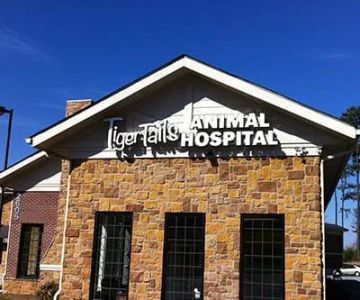What is a Veterinary Practice That Specializes in Animal Oncology Called?
Introduction to Animal Oncology
When our pets face serious health issues, especially those as daunting as cancer, we want to ensure they receive the best care possible. This is where the field of animal oncology becomes essential. But what exactly is a veterinary practice specializing in animal oncology, and how can it help your furry friend?

2605 Peachtree Industrial Blvd, Duluth, GA 30097, USA
See DetailsUnderstanding Veterinary Oncology
A veterinary practice that specializes in animal oncology is called a veterinary oncology practice. These clinics are staffed with highly trained veterinarians who focus on the diagnosis, treatment, and management of cancer in animals. Much like human oncology, animal oncology involves various treatments such as chemotherapy, radiation therapy, surgery, and more.
The Role of a Veterinary Oncologist
Just like how human oncologists specialize in cancer treatment, a veterinary oncologist focuses specifically on treating cancer in animals. Their expertise includes understanding the types of cancer that can affect different animals, the best ways to diagnose them, and the treatment methods that will provide the highest chance of success.
What Makes Animal Oncology Different from Other Veterinary Practices?
The most significant difference between a typical veterinary practice and an animal oncology practice is the level of specialization and the treatments available. Veterinary oncologists have access to advanced diagnostic tools and treatment options, such as:
- Chemotherapy: Administered to pets to shrink tumors or slow cancer progression.
- Radiation therapy: Targeted treatment used to eliminate or shrink tumors.
- Surgical oncology: Involves the removal of tumors to prevent the spread of cancer.
- Palliative care: Focused on easing symptoms and improving quality of life when curative treatments are not viable.
Signs Your Pet Might Need a Veterinary Oncologist
If you notice any of the following signs in your pet, it may be time to visit a veterinary oncology practice:
- Unexplained weight loss
- Loss of appetite
- Lumps or bumps on the body
- Changes in behavior or activity levels
- Coughing, difficulty breathing, or abnormal breathing sounds
What to Expect During an Animal Oncology Appointment
When you bring your pet to a veterinary oncology practice, the first step will be a thorough examination. The oncologist will assess your pet’s overall health and may recommend diagnostic tests such as blood work, imaging (X-rays, ultrasounds, CT scans), or biopsies. Based on the results, the oncologist will discuss potential treatment options tailored to your pet’s specific condition.
The Importance of Specialized Care for Pets with Cancer
Specialized care is critical in managing cancer in animals. Without the right treatment, cancer can rapidly progress, reducing the quality of life and life expectancy of your pet. A veterinary oncology practice provides a supportive environment where your pet can receive the most advanced treatment options available. This specialized care can help extend the life of your pet while maintaining their quality of life.
Success Stories in Animal Oncology
Many pet owners have experienced success stories after seeking the help of veterinary oncologists. For example, a dog diagnosed with lymphoma might undergo chemotherapy, which, in some cases, can result in remission, allowing the dog to live a healthy life for several more years. These success stories are a testament to the incredible advances in veterinary oncology and the positive impact these specialized treatments can have on pets’ lives.
Choosing the Right Veterinary Oncology Practice
When selecting a veterinary oncology practice, it's important to consider factors such as the clinic’s reputation, the experience of its veterinarians, and the treatment options they offer. It’s also helpful to speak to other pet owners who have had similar experiences or to consult your regular vet for a referral to a trusted oncology specialist.
In conclusion, if your pet is diagnosed with cancer, seeking a veterinary oncology specialist could be the key to giving them the best chance of recovery. These specialists are equipped with the knowledge and resources to offer your pet the most effective treatments available.










